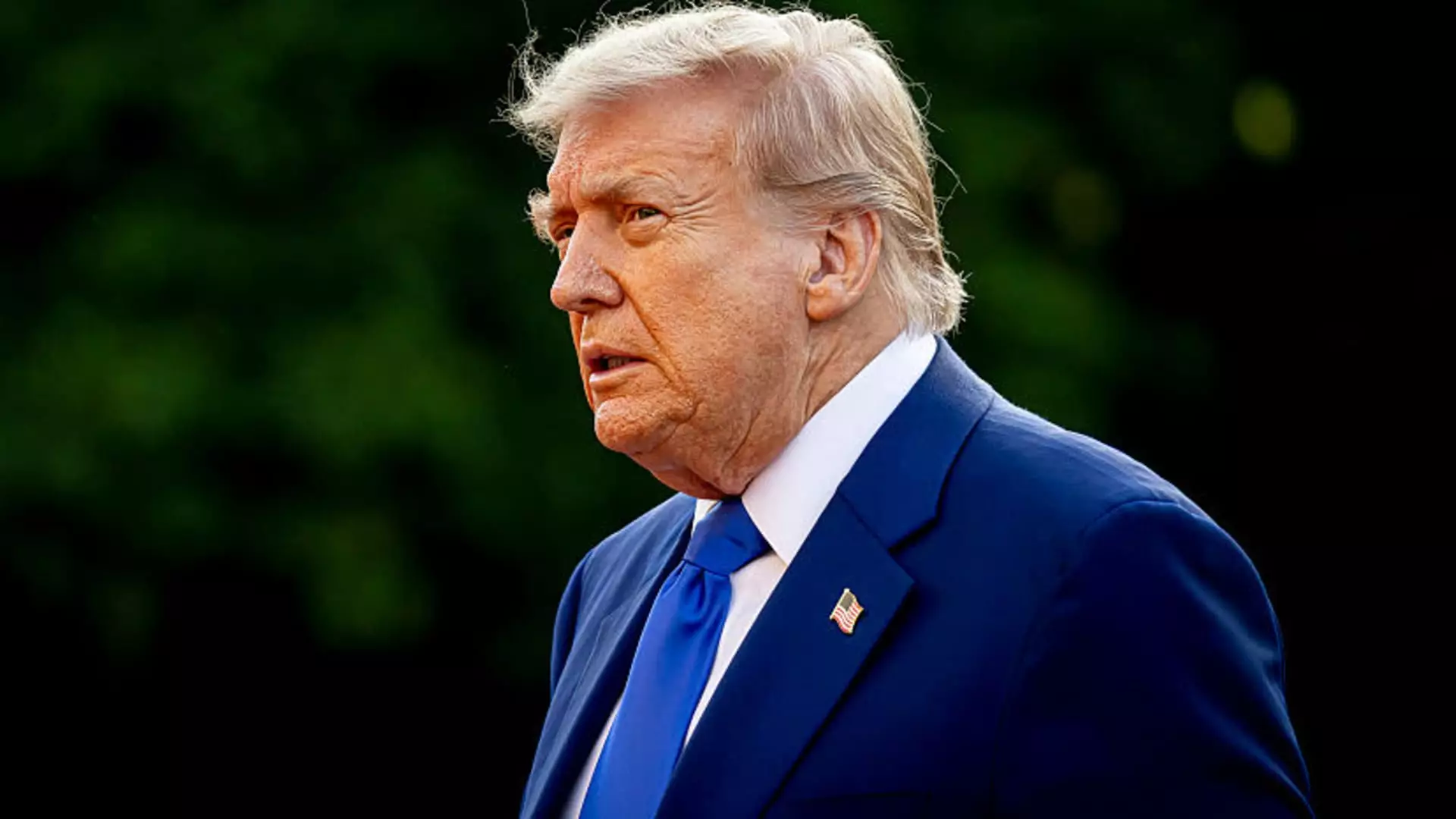The ongoing saga surrounding President Donald Trump’s tariff policies brings to light a maze of strategy, intention, and negotiation tactics. The recent announcement from the White House, suggesting a potential extension of tariff pause deadlines, casts doubt on the administration’s commitment to previously stated timelines. Karoline Leavitt, the White House press secretary, suggested that the July deadline isn’t a firm one, leaving citizens and markets questioning the reliability of the administration’s messaging once again. This behavior raises significant concerns about Trump’s leadership style, particularly in a civic and economic landscape that demands clarity and accountability.
The emphasis on flexibility when it comes to trade negotiations—exemplified by Leavitt’s remarks that “the president can simply provide these countries with a deal”—illustrates a troubling tendency to operate in a realm of vague promises without accountability. By treating trade agreements like negotiable commodities rather than binding commitments, the administration risks alienating not only its international partners but also the American workforce that thrives on predictability and fairness. The hesitation to commit to hard deadlines muddles the socio-economic climate, creating a fog of uncertainty that can deter long-term investment and commitment from allies overseas.
Market Reactions: A Reflection of Fragility
In the wake of these unclear communications, the stock market reacted with some optimism—rising to session highs after Leavitt’s briefing. However, such a reflexive upswing appears to underscore the fragility of market confidence under the Trump administration. The market’s buoyancy felt more like a knee-jerk reaction to hope rather than a substantive belief in the soundness of the policy direction. The notion that deadlines may be flexible doesn’t inspire true confidence; it instills a deeper sense of mistrust in the ongoing negotiation process.
Here’s where the heart of central liberalism lies: the understanding that economic policies should facilitate not only profits but also a well-functioning society. Investors should feel secure, yes, but the stability demonstrated by investors needs to be echoed in the day-to-day lives of working Americans too. Without this balance, we risk making trading across borders a high-stakes gamble where the American worker bears the brunt of top-level decision-making indecision.
The Mirage of Trade Deals
Trump’s insistence that progress is being made, juxtaposed with the reality that the administration has only struck minimal trade agreements within the advertised time frame, unveils a more significant narrative at play. The claim of “90 trade deals in 90 days” seems to suggest a hyperactive negotiation pace which, in reality, has only produced vague frameworks with China and the UK. The stark contrast between expectation and delivery reeks of a marketing strategy more than it embodies genuine diplomatic progress—a trend unsettling to any centrist liberal.
Moreover, the vague indication that deals with India could be on the horizon serves as a troubling illustration of half-hearted negotiations. Instead of bringing concrete agreements to the table that benefit both domestic and international stakeholders, there appears to be a tendency to dangle prospects like a carrot to appease concerned entities. This approach disregards the communities at home that rely on solid trade frameworks for employment and economic stability.
Grappling with Accountability
The dynamics within the White House, characterized by promises that seem to evaporate into the air, are worrisome. We see key players like Treasury Secretary Scott Bessent and National Economic Council Director Kevin Hassett making statements that hint at an impending resolution without any tangible outcomes. These impressions highlight a broader concern about the extent to which the administration—or any administration—can rely on anecdotal endorsements of progress while ignoring the need for concrete milestones.
In an era when political accountability is paramount, particularly to the liberal center that values transparency and cooperation, the administration’s approach to tariffs and trade deals comes off as reckless. The suggestion that crucial agreements may be struck after the passage of a major tax-and-spending bill echoes a tactic of leveraging urgent economic policies against negotiations, which is inherently counterproductive.
As American constituents grapple with uncertainty in both their domestic jobs and international trade opportunities, the pressure mounts for a political framework that prioritizes clarity, cooperation, and realistic expectations. Amidst the shifting landscape of tariffs and negotiations, a more considerate, stable approach to international relations remains desperately needed, lest we overlook the very people we aim to protect.


Leave a Reply